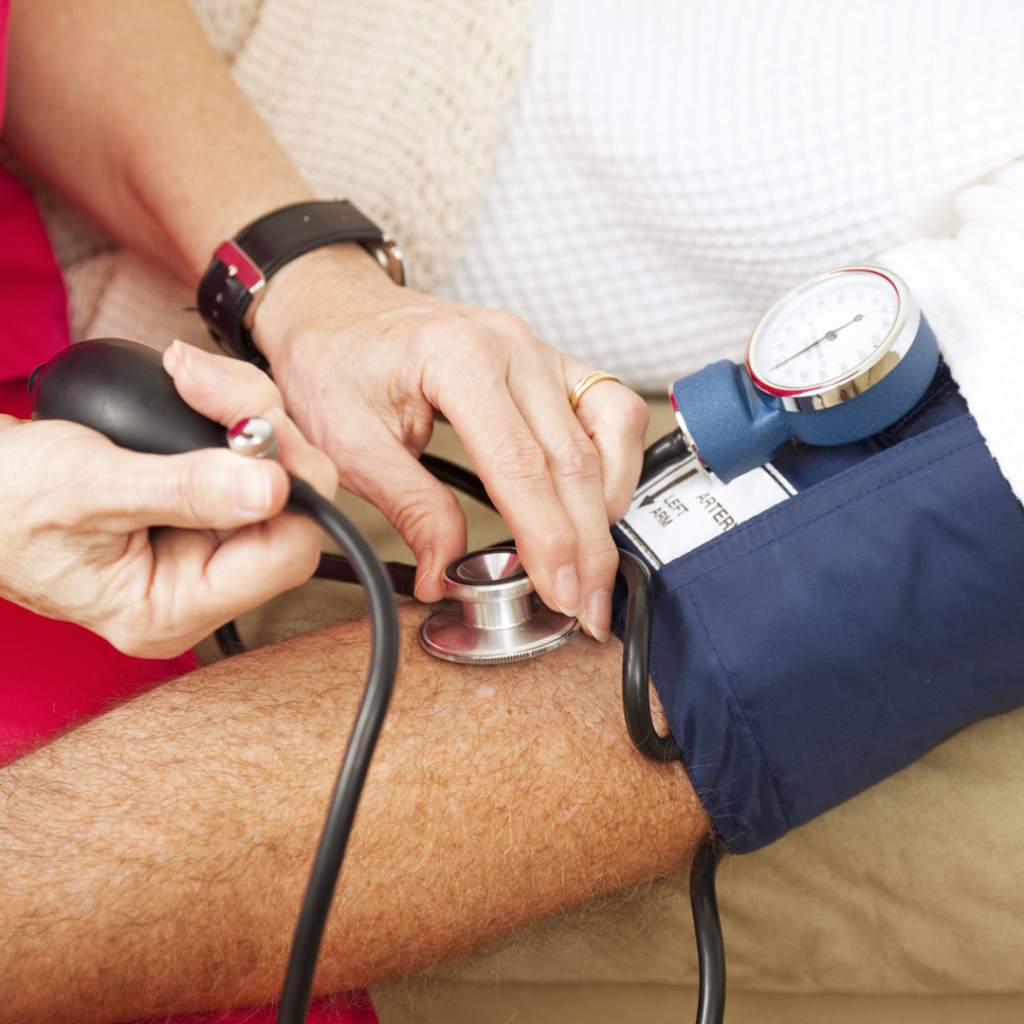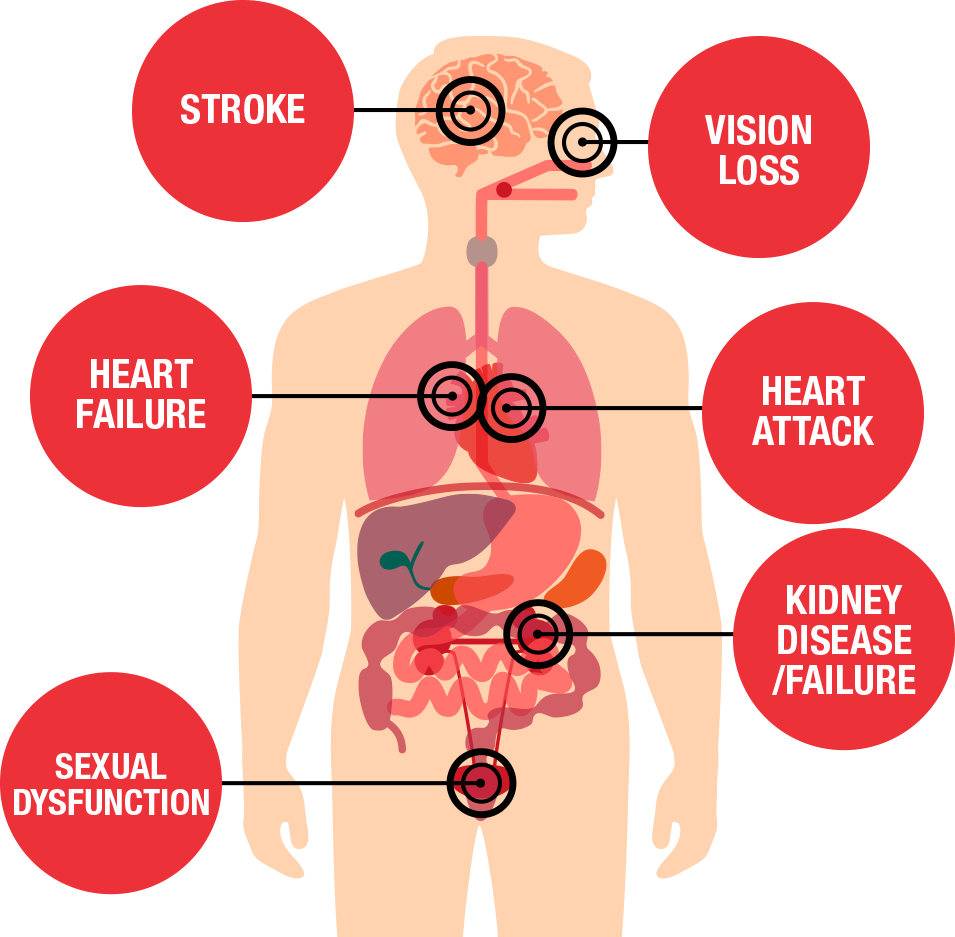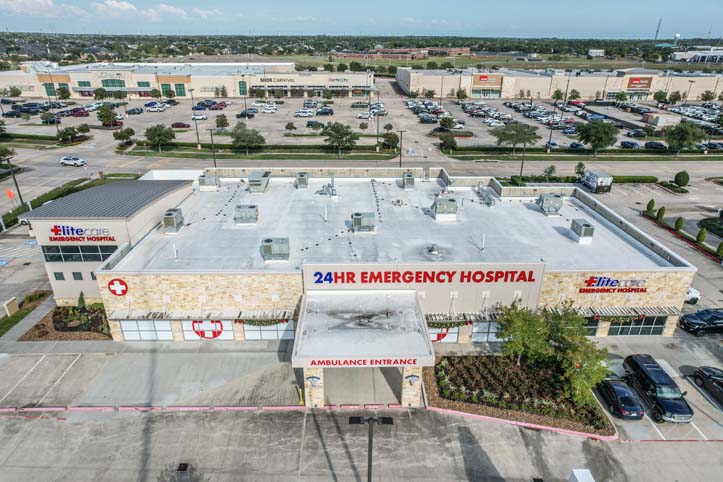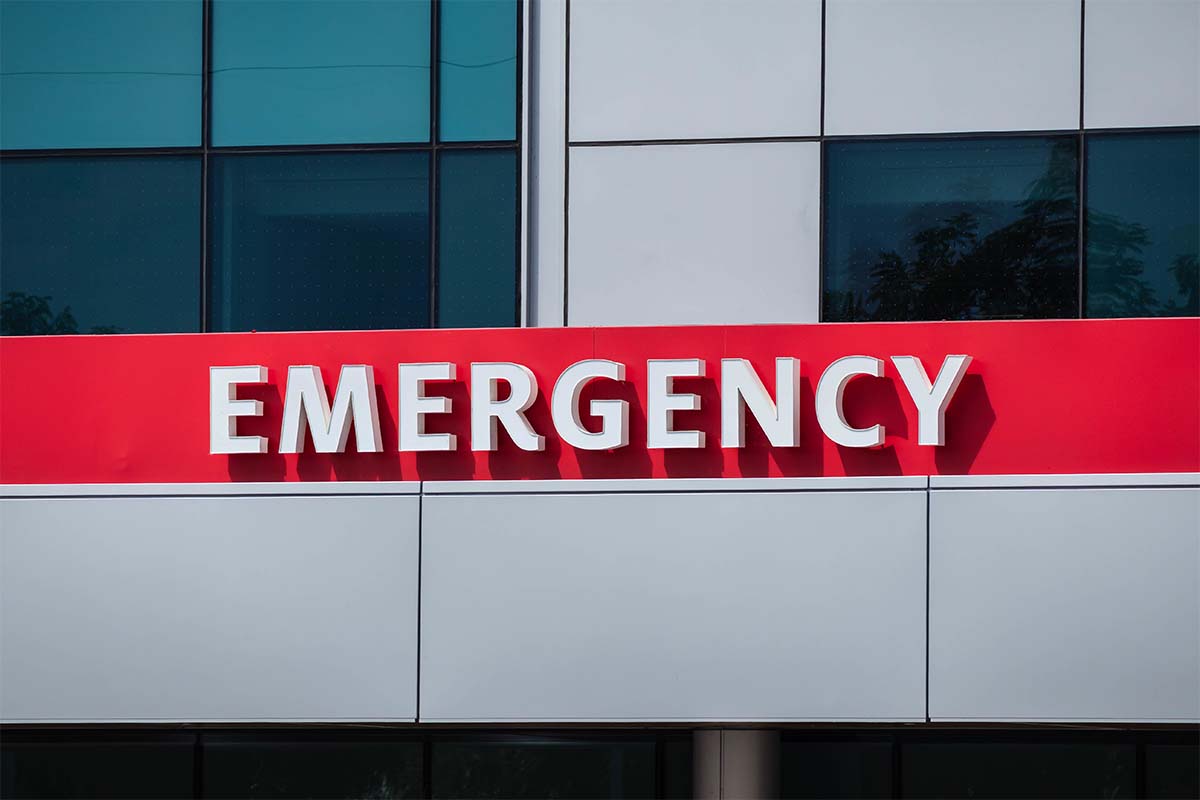
High blood pressure increases the risk of heart disease and stroke, two leading causes of death for Americans. Tens of millions of adults in the United States have high blood pressure, and many do not have it under control because of rare physical symptoms. That is why it is also known as the silent killer. (CDC)
In the United States, key findings by the recognized government bodies (Million Hearts) indicate that:
- Nearly 1 out of 2 adults have hypertension (108 million).
- Most adults with hypertension do not have their hypertension under control (82 million).
- Most adults with hypertension are recommended prescription medication with lifestyle modifications (87 million).
It’s important that we share with you to learn about what high blood pressure is, and when you may be having a life-threatening blood pressure complication.
What is High Blood Pressure/Hypertension?
Our heart pumps blood in our entire body. As it travels, the blood supplies oxygen to the body’s vital organs. Sometimes, a problem in the body makes it difficult for the heart to pump the blood, for example, when the artery becomes too narrow, etc.
High blood pressure (HBP or hypertension) is when your blood pressure, the force of your blood pushing against the walls of your blood vessels, is consistently too high. It can lead to a variety of health problems, some of which can be life-threatening.
How Do I Know I Have It?
It is a medical condition with negligible physical symptoms, but it can quietly damage different body parts of the patient. The best way to monitor your heart’s health is to measure your blood pressure levels regularly. You can do it easily, even at your home.
Blood pressure readings are in millimeters of mercury (mm Hg). The top number (systolic) indicates the pressure in the arteries as the heartbeats. The lower number (diastolic) indicates the pressure as the heart rests between beats. As long as a person measures their blood pressure correctly, the results are just as reliable as a doctor’s measurement.
The following table, from the American Heart Association (AHA), shows the classification of high blood pressure in adults:

What causes extremely high blood pressure?
Specific abnormalities happening in your body can lead to high blood pressure or if a person with born with particular genetic dysfunction. The likelihood of developing high blood pressure is higher in adults with obesity, diabetes, kidney disease, under or overactive thyroid, lupus, obstructive sleep apnea, amongst others.
Consuming a high-fat diet, carrying excess weight, drinking a lot of alcohol, smoking tobacco, and the use of some medications can also increase the risk.
In some cases, there is no defined cause when doctors diagnose primary hypertension.
No matter the cause, it’s crucial to get help as soon as possible. Seek medical attention if your blood pressure gets above 180 (top) or 110 (bottom). Doctors must evaluate potential organ damage and reverse the process before it’s too late. (Medical News Today)
What is a hypertensive crisis?
A hypertensive crisis occurs when your blood pressure is so high. It can inflame your blood vessels and impair the ability of your cardiovascular system to work as it should, putting you at risk for stroke, heart attack, or other severe illness.

Image Source – heart.org
There are two stages of a hypertensive crisis: emergency and urgency. Both require immediate attention as early evaluation of organ function is critical to determine an appropriate course of action.
Hypertensive emergency is when your blood pressure is over 180 (top) or 120 (bottom). It is a real life-threatening emergency with impending target-organ-damage (TOD) in the heart, brain, kidney, and large blood vessels. Severe conditions, such as ischemic heart failure, acute renal failure, and aorta rupture, are suspected in such patients. Emergency admission to an intensive care unit is mandatory for prompt reduction of blood pressure by approximately 20 to 25 percent, depending on alleged conditions.
In urgency hypertensive crisis, your blood pressure is over 180 systolic (the top number) or 110 diastolic (the lower number). While some patients may hold relatively lower risk, a certain degree of hypertensive urgency can pose an immediate threat. Thus, it is critical to have clear standards on when to send hypertensive patients to the ER.
These severe symptoms can include:
- Severe chest pain
- Severe headache plus confusion or blurred vision
- Back pain
- Nausea and vomiting
- Severe anxiety
- Shortness of breath
- Vision problems
- Nosebleeds
- Seizures
- Difficulty speaking
- Numbness or weakness
- Unresponsiveness
Stay Prepared!
If you have high blood pressure, track your blood pressure, and medications. If possible, during an emergency, having these logs with you can provide valuable information to the medical team providing treatment.
Don’t ignore your symptoms. Call 911 immediately if the person loses consciousness. Head to the ER when you suspect emergency care is needed, but be sure if you are the one having symptoms, not to drive yourself. If you know you already have high blood pressure and something changes, it can be a sign that something more serious is happening. Our Board Certified ER Physicians are equipped to handle these life-threatening emergencies. We will take you in immediately to be sure you are diagnosed and treated with a protocol for possible heart attack or stroke.
Works Cited
“High Blood Pressure.” Centers for Disease Control and Prevention, Centers for Disease Control and Prevention, 7 Apr. 2020, www.cdc.gov/bloodpressure/index.htm.
Cdc. “Hypertension Prevalence in the U.S.: Million Hearts®.” Centers for Disease Control and Prevention, 5 Feb. 2020, millionhearts.hhs.gov/data-reports/hypertension-prevalence.html.
Collier, Lorna. “When Is High Blood Pressure an Emergency?” Healthgrades, Healthgrades, 13 Feb. 2020, www.healthgrades.com/right-care/high-blood-pressure/when-is-high-blood-pressure-an-emergency.
Caporuscio, Jessica. Are There Symptoms for High Blood Pressure? Medical News Today, 16 Dec. 2019, www.medicalnewstoday.com/.
Kanai, Kuniyoshi. “When to Send Your Hypertensive Patient to the ER.” Optometry Times, 26 Sept. 2018, www.optometrytimes.com/hypertension/when-send-your-hypertensive-patient-er.
Felman, Adam. “What to Know about High Blood Pressure.” Medical News Today, 13 Nov. 2019, www.medicalnewstoday.com/articles/159283#what-is-high-bp/articles/327320.
“What Is High Blood Pressure?” heart.org, www.heart.org/en/health-topics/high-blood-pressure/the-facts-about-high-blood-pressure/what-is-high-blood-pressure.
















